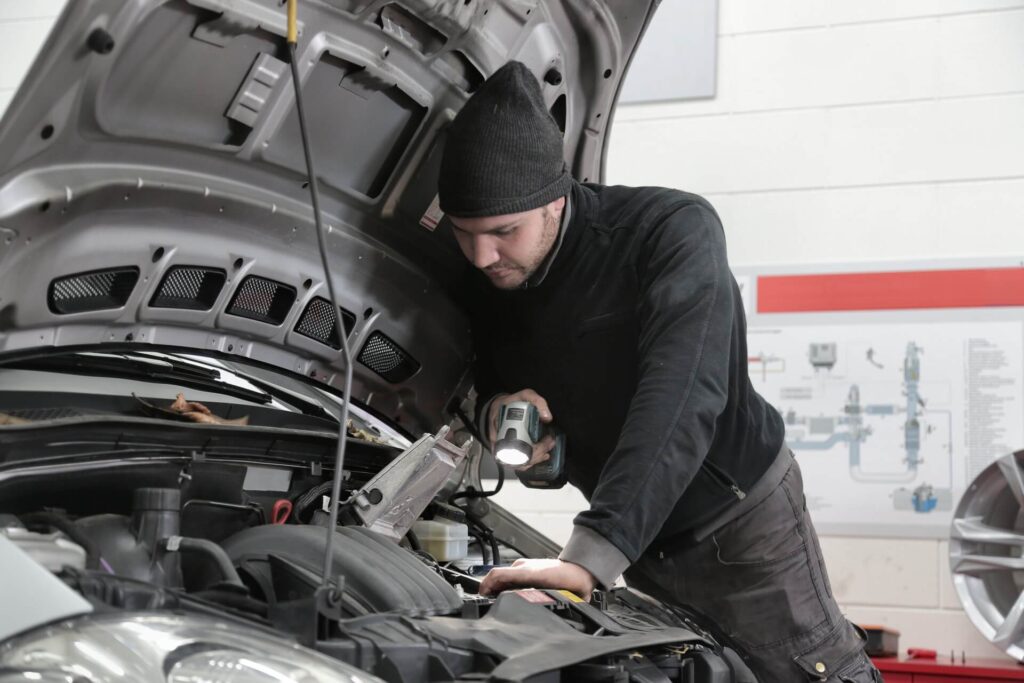Your vehicle’s engine is the heart of the car, and regular maintenance is key to ensuring it performs at its best. Keeping your engine in top shape not only enhances its longevity but also improves fuel efficiency and helps prevent costly repairs down the road. At Mike Golin Automotive, we’ve put together this ultimate guide to help you take care of your engine and keep it running smoothly for years to come.
1. Regular Oil Changes
Why It’s Important: Engine oil lubricates the moving parts inside the engine, reducing friction and preventing wear. Over time, oil breaks down and gets dirty, which can cause engine parts to wear out more quickly.
How to Maintain:
-
Change Oil Every 3,000 to 7,500 Miles: Check your owner’s manual for the recommended oil change interval. Many newer cars can go longer between oil changes, but it’s always best to err on the side of caution.
-
Use the Right Oil: Make sure you’re using the right type and grade of oil for your vehicle. Your owner’s manual will have this information.
-
Replace Oil Filter: Each time you change your oil, replace the oil filter to ensure clean oil is circulating through your engine.
2. Check and Replace the Air Filter
Why It’s Important: The air filter keeps dirt and debris from entering your engine, allowing it to breathe clean air. A clogged air filter can reduce fuel efficiency and engine performance.
How to Maintain:
-
Inspect Regularly: Check the air filter every 12,000 to 15,000 miles or more often if you drive in dusty conditions.
-
Replace When Dirty: A dirty filter can restrict airflow and cause engine strain. Replace the air filter when it appears dirty or clogged.
3. Maintain the Cooling System
Why It’s Important: The cooling system prevents the engine from overheating. It circulates coolant through the engine, regulating its temperature and preventing costly engine damage.
How to Maintain:
-
Check Coolant Levels: Make sure your coolant levels are topped off. Low coolant levels can cause your engine to overheat.
-
Flush the Radiator: Every 30,000 miles, have your radiator flushed to remove any dirt, rust, and other contaminants that can cause blockages and inefficient cooling.
-
Inspect Hoses and Belts: Regularly inspect the radiator hoses and belts for wear and leaks. Replace them as needed to avoid breakdowns.
4. Keep the Timing Belt in Check
Why It’s Important: The timing belt ensures that the engine’s camshaft and crankshaft are working together, allowing the engine to run smoothly. If the timing belt breaks, it can cause significant engine damage.
How to Maintain:
-
Replace Every 60,000 to 100,000 Miles: Most manufacturers recommend replacing the timing belt every 60,000 to 100,000 miles, but check your owner’s manual for the recommended interval.
-
Look for Signs of Wear: If you notice any strange noises, vibrations, or difficulty starting your engine, it may be time to check the timing belt.
5. Monitor the Battery
Why It’s Important: A weak or dead battery can leave you stranded, and a failing battery can cause issues with your vehicle’s electrical system, including the alternator.
How to Maintain:
-
Clean Battery Terminals: Corroded battery terminals can lead to poor electrical connections. Clean the terminals regularly to ensure good power flow.
-
Test Battery Health: Have your battery tested at regular intervals, especially before long trips or during extreme weather conditions. Most auto parts stores will do this for free.
-
Replace Every 3-5 Years: Batteries don’t last forever. If your battery is over 3 years old, it’s time to start thinking about a replacement.
6. Keep an Eye on Fluid Levels
Why It’s Important: Engine fluids, including transmission fluid, brake fluid, and power steering fluid, help keep your engine running smoothly and prevent wear. Low fluid levels can lead to significant damage.
How to Maintain:
-
Check Fluids Regularly: Regularly check the fluid levels in your engine. Make sure they are within the proper range as specified in your owner’s manual.
-
Top Off as Needed: If any fluids are low, top them off or have them replaced if necessary. Be sure to use the right type of fluid for your car.
-
Flush Fluids Periodically: Fluids such as brake fluid, transmission fluid, and power steering fluid need to be flushed and replaced at regular intervals.
7. Monitor the Exhaust System
Why It’s Important: Your exhaust system helps direct harmful gases away from the engine and reduces emissions. A blocked or damaged exhaust can lead to poor engine performance and reduced fuel efficiency.
How to Maintain:
-
Check for Leaks: Listen for any strange sounds, like a loud rumble, which can indicate an exhaust leak.
-
Inspect the Catalytic Converter: This important component reduces harmful emissions. If your engine performance drops or you notice a strong sulfur smell, your catalytic converter may need attention.
8. Regular Engine Diagnostics
Why It’s Important: Over time, various engine components can develop issues that may not be immediately obvious. Running regular diagnostics can help identify problems before they escalate into major repairs.
How to Maintain:
-
Have Diagnostics Performed Regularly: If you notice unusual sounds, smells, or a drop in performance, take your car in for a diagnostic check-up.
-
Use a Professional Mechanic: Regular diagnostics will help ensure that your vehicle remains in peak condition and prevent expensive repairs down the line.
Conclusion
Maintaining your vehicle’s engine is key to ensuring your car runs smoothly, efficiently, and safely. By staying on top of regular maintenance like oil changes, air filter replacements, and fluid checks, you’ll extend the life of your vehicle and reduce the risk of costly repairs.
At Mike Golin Automotive, we’re here to help with all your engine maintenance needs. Our expert technicians provide reliable services to keep your car in top shape. Schedule an appointment with us today and keep your engine running like new!
